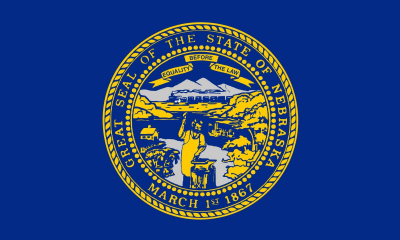Edward Joseph Flanagan (13 July 1886 15 May 1948) was an Irish-born priest of the Catholic Church in the United States, who served for decades in Nebraska. After serving as a parish priest in the Catholic Diocese of Omaha, he founded the orphanage and educational complex known as Boys Town, located west of the city in what is now Boys Town, Douglas County, Nebraska. In the 21st century, the complex also serves as a center for troubled youth.
Flanagan's work became widely known, especially after he was played by Spencer Tracy in the movie Boys Town (1938). In the post-World War II era, Flanagan was invited by General Douglas MacArthur to visit Japan and Korea, and later Austria and Germany, to give him advice about improving conditions for children in the occupied countries.
In 2012 the Catholic Diocese of Omaha initiated the process for canonization of Fr. Flanagan. That year he was declared a "Servant of God". Documentation of the cause was sent to the Vatican in 2015.
Nebraska ( (listen)) is a state in the Midwestern region of the United States. It is bordered by South Dakota to the north; Iowa to the east and Missouri to the southeast, both across the Missouri River; Kansas to the south; Colorado to the southwest; and Wyoming to the west. It is the only triply landlocked U.S. state.Indigenous peoples, including Omaha, Missouria, Ponca, Pawnee, Otoe, and various branches of the Lakota (Sioux) tribes, lived in the region for thousands of years before European exploration. The state is crossed by many historic trails, including that of the Lewis and Clark Expedition.
Nebraska's area is just over 77,220 square miles (200,000 km2) with a population of over 1.9 million. Its capital is Lincoln, and its largest city is Omaha, which is on the Missouri River. Nebraska was admitted into the United States in 1867, two years after the end of the American Civil War. The Nebraska Legislature is unlike any other American legislature in that it is unicameral, and its members are elected without any official reference to political party affiliation.
Nebraska is composed of two major land regions: the Dissected Till Plains and the Great Plains. The Dissected Till Plains region consists of gently rolling hills and contains the state's largest cities, Omaha and Lincoln. The Great Plains region, occupying most of western Nebraska, is characterized by treeless prairie. Nebraska has two major climatic zones. The eastern two-thirds of the state has a humid continental climate (Köppen climate classification Dfa); a unique warmer subtype considered "warm-temperate" exists near the southern plains, which is analogous to that in Kansas and Oklahoma, which have a predominantly humid subtropical climate. The Panhandle and adjacent areas bordering Colorado have a primarily semi-arid climate (Köppen BSk). The state has wide variations between winter and summer temperatures, variations that decrease moving south within the state. Violent thunderstorms and tornadoes occur primarily during spring and summer and sometimes in autumn. Chinook wind tends to warm the state significantly in the winter and early spring.

1917Dec, 12
In Nebraska, Father Edward J. Flanagan founds Boys Town as a farm village for wayward boys.
Choose Another Date
Events on 1917
- 22Jan
Woodrow Wilson
World War I: President Woodrow Wilson of the still-neutral United States calls for "peace without victory" in Europe. - 15Mar
Nicholas II of Russia
Tsar Nicholas II of Russia abdicates the Russian throne ending the 304-year Romanov dynasty. - 2Apr
Woodrow Wilson
World War I: United States President Woodrow Wilson asks the U.S. Congress for a declaration of war on Germany. - 5Jun
Conscription
World War I: Conscription begins in the United States as "Army registration day". - 27Jul
Battle of Passchendaele
The Allies reach the Yser Canal at the Battle of Passchendaele.

 English
English  español
español  français
français  português
português  русский
русский  العربية
العربية  简体中文
简体中文 